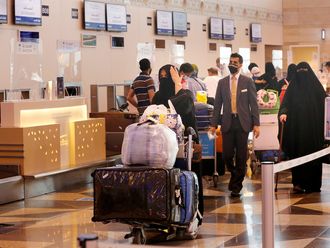London: Exchange-rate swings stemming from Europe's debt crisis have highlighted the risks of holding existing reserve currencies and the need for more alternatives, the chief executive of Russia's second-largest bank said.
The euro has slumped 16 per cent this year and last week sank below $1.20 (Dh4.40) for the first time since March 2006.
This followed Greece last month tapping a 750 billion-euro ($913 billion) emergency loan package put together by the European Union and the International Monetary Fund.
China, which has the world's biggest foreign-exchange reserves, has voiced concern about the dollar's future, with Premier Wen Jiabao having as recently as March expressed concern about its holdings of the US currency.
"The recent financial instability shows, if not the complete failure of currencies like dollars and euros, but also the threats which are existing in the present financial system," VTB Group chief executive Andrei Kostin said at a press conference ahead of a World Economic Forum meeting in Ho Chi Minh City, Vietnam.
"It led to more discussions of whether we would move to more reserve currencies," he said.
Russia and China were increasingly settling cross-border trade in their own currencies rather than US dollars, Kostin said.
"In the bilateral relationships, when we talk about Russia and China, for example, we are moving slowly from dollar-denominated settlement to roubles and yuan," he said.
"The problems we have had in, for example, Europe, can instigate this attempt."












